
Table of Contents
- Introduction
- The Challenges Facing African Agriculture
- Introduction to AI in Agriculture
- HTSF Global’s Role in Integrating AI into African Agriculture
- Benefits of AI for African Farmers
- Challenges and Limitations of AI in African Agriculture
- The Future of AI in African Agriculture
- Conclusion
Introduction
The African agricultural landscape is currently undergoing significant transformation. Agriculture, which is the backbone of many African economies, is still largely characterized by smallholder farming. While agriculture accounts for over 15% of Africa’s GDP and employs around 60% of the continent’s labor force, it faces numerous challenges that hinder growth and sustainability. These include limited access to high-quality inputs, climate change, and inefficient farming practices.
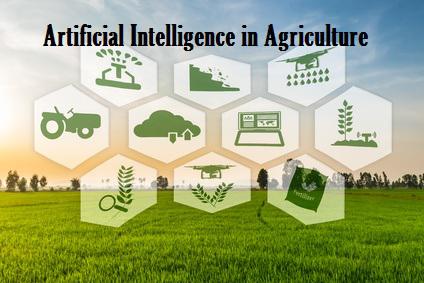
However, the adoption of modern technologies, particularly Artificial Intelligence (AI), is offering new opportunities to address these challenges. AI has the potential to revolutionize agriculture by enhancing productivity, improving decision-making, and making the industry more sustainable. HTSF Global is at the forefront of utilizing AI to drive innovation and sustainable growth in the African agricultural sector. Through the application of AI solutions, HTSF Global will be tackling critical problems like resource management, climate adaptation, and supply chain optimization.
The Challenges Facing African Agriculture
While agriculture in Africa holds immense potential, the sector is burdened with several challenges that limit its productivity, sustainability, and ability to compete on the global market. These challenges are both traditional and modern, and they hinder the ability of farmers to increase output and meet the growing demand for food. Below are the key issues affecting African agriculture:
Limited Access to Resources
Access to essential resources, such as quality seeds, fertilizers, and modern farming equipment, remains a significant barrier for smallholder farmers. According to the Food and Agriculture Organization (FAO), only a small fraction of African farmers have access to modern agricultural tools and technologies. Many farmers still rely on traditional, manual labor, which results in lower efficiency and productivity.
Additionally, access to financial services such as loans, credit, and insurance is limited, making it difficult for farmers to invest in better tools, techniques, and technologies that could increase their productivity. This financial barrier is one of the major contributors to the low adoption of modern farming practices.
Climate Change and Weather Variability
Climate change has significantly impacted African agriculture, particularly in regions where farming is heavily rain-dependent. The Intergovernmental Panel on Climate Change (IPCC) reports that Sub-Saharan Africa is one of the most vulnerable regions to the effects of climate change, including rising temperatures, droughts, and unpredictable rainfall patterns. These changes have devastating effects on crop yields, particularly for staple crops like maize, rice, and cassava.
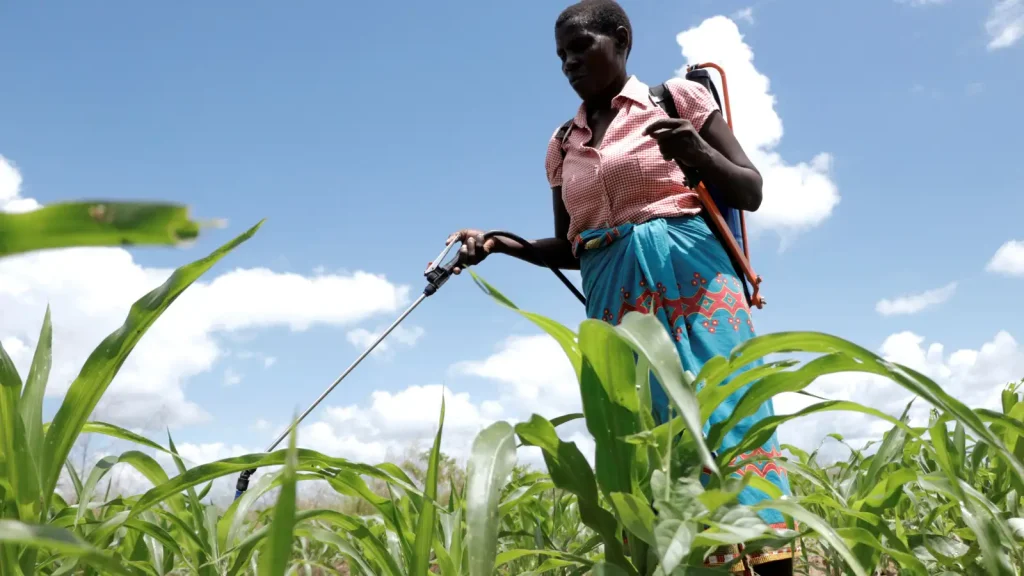
Farmers are also increasingly dealing with soil degradation and water scarcity, which limit their ability to cultivate crops successfully. The effects of climate change further exacerbate food insecurity, leading to crop failures and loss of income for rural communities.
Low Productivity and Traditional Practices
Many African farmers still rely on traditional farming methods, such as hand hoeing and low-yielding crop varieties, which result in inefficiency and low productivity. The use of inorganic fertilizers and modern irrigation systems remains limited in many parts of the continent. This gap in the adoption of innovative farming techniques contributes to the low yield per hectare, further complicating efforts to meet food demand.
In addition, post-harvest losses are a significant concern. According to the World Bank, up to 40% of food produced in sub-Saharan Africa is lost after harvest due to poor storage, transportation, and handling. These losses reduce the availability of food and contribute to increased prices in the marketplace.
Supply Chain and Market Access Issues
Supply chain inefficiencies and a lack of access to reliable markets are another major challenge. The transportation infrastructure in many African countries is underdeveloped, leading to high costs for moving goods from rural farms to urban markets. This inefficiency reduces the profit margins of farmers and makes it difficult for them to compete with global markets.
Moreover, market access remains a key challenge for smallholder farmers. Farmers often struggle to sell their produce at fair prices due to middlemen, market monopolies, and limited access to global trade networks. As a result, many farmers face significant barriers in achieving financial stability and growing their businesses.
Introduction to AI in Agriculture
Artificial Intelligence (AI) is no longer a futuristic concept but a reality that is transforming industries worldwide. In agriculture, AI refers to the use of advanced computational models, machine learning algorithms, and data analytics to optimize farming practices, improve decision-making, and enhance productivity. By analyzing vast amounts of data, AI systems can provide insights and solutions that were previously unimaginable.

In the context of agriculture, AI is revolutionizing how farmers manage their operations, predict outcomes, and overcome challenges. This includes applications in precision agriculture, crop monitoring, disease detection, and supply chain optimization. AI technologies can process data from sensors, satellites, drones, and weather stations to make real-time recommendations that help farmers reduce costs and increase yields.
How AI is Reshaping Agriculture Globally
The global adoption of AI in agriculture has already shown impressive results. For example, John Deere, a global leader in agricultural equipment, uses AI-powered machines to automatically adjust seeding and harvesting practices, leading to higher efficiency and productivity. In countries like India, AI-powered mobile apps help farmers predict weather patterns and receive expert advice on crop care, thus improving yields and reducing losses.

In Africa, the application of AI holds even greater potential. With a large rural population and a growing need for sustainable farming practices, AI can be a game-changer. It provides tools that empower farmers to adapt to climate change, optimize resource use, and increase their overall output, ultimately contributing to food security across the continent.
HTSF Global is one of the pioneers in utilizing AI within the African agricultural sector. By integrating AI into its solutions, HTSF is not only helping farmers optimize productivity but also providing a data-driven foundation for sustainable farming. AI can bring efficiency, intelligence, and sustainability to African agriculture, directly addressing many of the challenges outlined earlier.
HTSF Global’s Role in Integrating AI into African Agriculture
HTSF Global is leading the way in integrating Artificial Intelligence (AI) to address some of the most pressing challenges in African agriculture. By leveraging AI-powered solutions, HTSF Global aims to help farmers increase productivity, reduce costs, and adapt to environmental challenges while improving overall sustainability. The company’s efforts are aimed at transforming traditional farming practices and enabling farmers to thrive in the face of climate change, resource scarcity, and inefficiencies in the agricultural value chain.
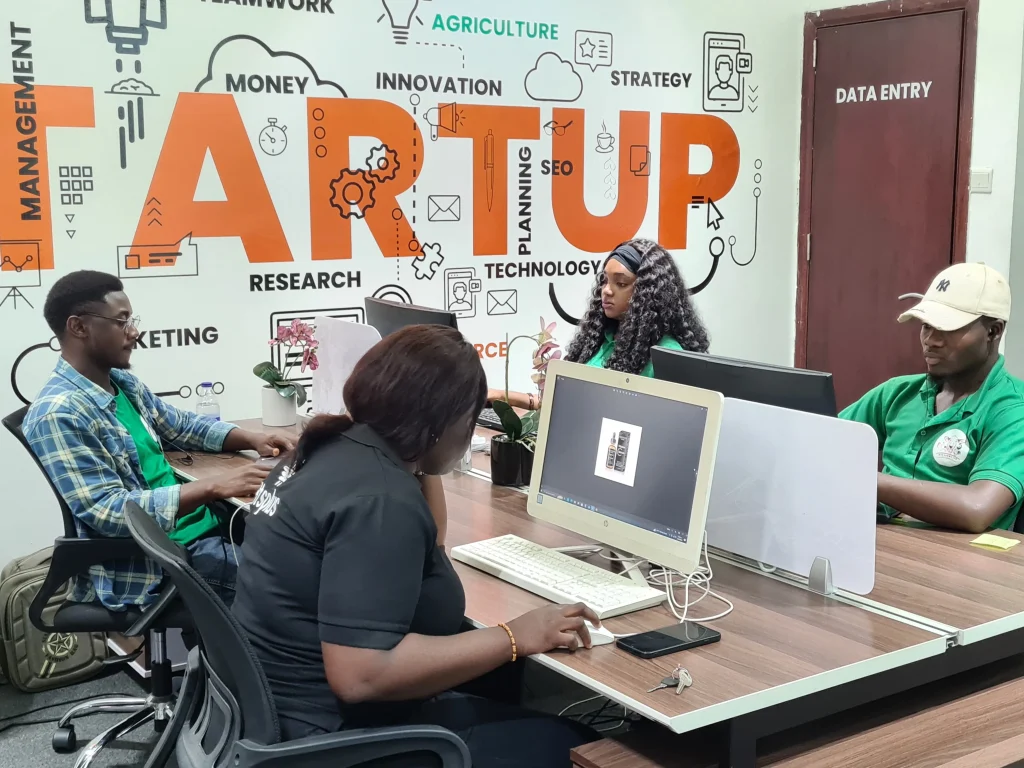
One of the key ways HTSF Global is planning to integrate AI into African agriculture is through AI-driven farm management tools. These tools combine data from weather patterns, soil conditions, and crop health to provide real-time recommendations. Farmers can optimize their use of resources such as water, fertilizers, and pesticides, significantly reducing waste. For example, AI helps farmers apply the right amount of irrigation and chemicals, improving crop yields while ensuring sustainability. Furthermore, AI-powered systems monitor crop health, allowing for the early detection of pests, diseases, or nutrient deficiencies. By using AI to predict potential yields, farmers can better plan their harvests, ensuring they are prepared for market demands.
HTSF Global is also looking at leveraging AI in precision agriculture. This approach will use data to ensure that resources are applied efficiently across fields. AI helps farmers optimize irrigation schedules based on current weather conditions and soil moisture levels, ensuring that water is used efficiently especially in regions experiencing water scarcity. Another AI technology, Variable Rate Technology (VRT), ensures that fertilizers and pesticides are applied only where they are needed, reducing excess use and minimizing the environmental impact. Drones and remote sensing technologies powered by AI are also increasingly used to monitor crop conditions and detect issues like pest infestations or nutrient deficiencies, enabling farmers to address problems quickly and effectively.

HTSF Global’s commitment to integrating AI will be evident in its efforts to provide mobile apps and USSD services that make these technologies accessible to farmers. While mobile apps cater to those with internet access, USSD is specifically designed for smallholder farmers in rural areas with limited or no internet connectivity, ensuring they can still access essential agricultural resources and services. These platforms give farmers real-time access to important information such as weather updates, market prices, and expert advice, all driven by AI. Farmers can also receive personalized guidance on crop management and pest control through AI-powered chatbots, improving decision-making and reducing risks. These platforms help farmers track their performance over time, allowing them to make informed decisions that improve their productivity and financial outcomes.
By harnessing the power of AI, HTSF Global is transforming African agriculture, helping farmers optimize their operations, increase their resilience to climate change, and achieve higher yields with fewer resources.
Benefits of AI for African Farmers
AI technologies bring numerous benefits to African farmers, directly addressing many of the challenges they face, including resource inefficiencies, unpredictable weather, and market access. The adoption of AI in agriculture can revolutionize farming practices, leading to more productive, sustainable, and resilient systems. Below are the key benefits of AI for African farmers:
Enhanced Decision-Making
AI empowers farmers with real-time, data-driven insights that enable them to make more informed decisions. From determining the optimal time to plant crops to assessing the ideal irrigation needs, AI systems analyze a variety of factors, including weather forecasts, soil conditions, and pest risks. These insights reduce reliance on guesswork and increase the chances of successful yields.
Improved Resource Efficiency
By optimizing the use of resources such as water, fertilizers, and pesticides, AI technologies help farmers minimize waste and costs. For instance, AI-powered precision agriculture systems automatically adjust irrigation schedules based on current weather patterns and soil moisture, preventing overwatering and conserving precious water resources. Similarly, AI enables Variable Rate Technology (VRT), allowing farmers to apply fertilizers and pesticides only where needed, reducing chemical usage and environmental impact.
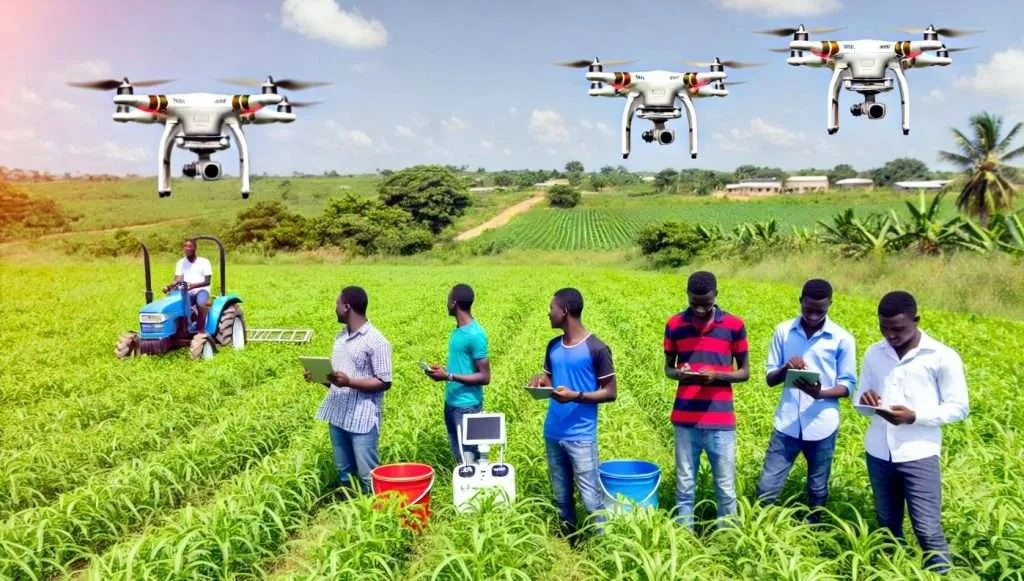
Increased Crop Yields
AI helps farmers increase their crop yields by providing precise and tailored recommendations. Through monitoring crop health, detecting diseases or pests early, and predicting weather patterns, AI enables farmers to take proactive measures. AI-driven farm management tools also help farmers manage multiple crops efficiently, ensuring that each plant receives the proper care and attention to thrive.
Risk Mitigation and Climate Adaptation
As climate change increasingly threatens African agriculture, AI plays a crucial role in helping farmers mitigate risks and adapt to changing conditions. AI can predict extreme weather events, such as droughts or storms, allowing farmers to take preventive action. It also helps farmers adapt to longer-term shifts in climate patterns by recommending climate-resilient crops and farming practices.
Access to Markets and Fair Pricing
AI also aids in enhancing market access by providing farmers with valuable information on market trends, pricing, and demand forecasting. With accurate predictions about supply and demand, farmers can plan production more effectively and negotiate better prices for their products. Additionally, AI-powered platforms help farmers connect with suppliers and buyers directly, cutting out intermediaries and increasing profit margins.
Challenges and Limitations of AI in African Agriculture
While AI holds immense potential for transforming African agriculture, its integration is not without challenges. Farmers in Africa face several barriers to the adoption of AI, and overcoming these limitations is essential for realizing the full benefits of the technology.

Access to Technology
One of the main challenges is the limited access to technology. While mobile phone usage is widespread in Africa, many farmers still lack access to smartphones or the internet, particularly in rural areas. Although AI tools are increasingly available through mobile apps and USSD services, there is a need for more widespread infrastructure to ensure that all farmers, including those in remote areas, can benefit from these technologies.
High Initial Investment Costs
AI systems and the required infrastructure (such as sensors, drones, and AI-powered software) can be expensive. Smallholder farmers, who make up the majority of the agricultural workforce in Africa, often cannot afford the initial investment. Without financial support, access to AI tools remains limited, preventing many farmers from reaping the benefits of these technologies.
Lack of Digital Literacy
Another challenge is the lack of digital literacy among many African farmers. While mobile phone usage is common, many farmers may not have the skills to use advanced technologies like AI-powered apps or platforms. Bridging the digital divide through education and training programs is essential to ensure that farmers can take full advantage of AI-driven solutions.

Data Privacy and Security
The collection of large amounts of data from farms such as soil conditions, weather data, and crop health raises concerns around data privacy and security. Ensuring that farmers’ data is protected and used responsibly is critical to gaining their trust in AI technologies. Strict regulations and transparent data-sharing practices must be established to address these concerns.
Infrastructure and Connectivity Issues
In many African regions, poor infrastructure and limited internet connectivity pose significant barriers to the adoption of AI. For AI solutions to work effectively, a stable and reliable internet connection is often required to transmit data and update models. Without proper infrastructure, even the best AI systems may struggle to function optimally in remote agricultural areas.
The Future of AI in African Agriculture
The future of AI in African agriculture is promising, with vast potential to further transform farming practices across the continent. As technology advances, we can expect the following developments:
- Wider Adoption of AI Tools: With improvements in mobile connectivity and affordable technology, more farmers will be able to access AI-powered platforms, improving decision-making and operational efficiency.
- Integration of AI with IoT: The combination of AI with Internet of Things (IoT) devices will enable real-time data collection and automation, leading to even more precise farming practices, such as automated irrigation and crop management.
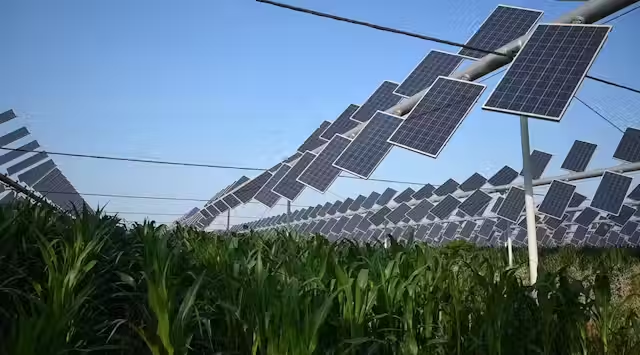
- Advanced AI for Climate Resilience: AI’s ability to predict and adapt to climate changes will become even more advanced, helping farmers identify new resilient crop varieties and implement sustainable practices to cope with changing weather patterns.
- AI-Powered Supply Chain: The integration of AI across the entire agricultural value chain, from farm to market, will enhance transparency, reduce food wastage, and ensure that farmers receive fair prices for their products.
As the ecosystem matures, AI has the potential to revolutionize agriculture on the continent, providing sustainable solutions that enhance productivity, increase food security, and improve the livelihoods of millions of African farmers.
Conclusion
AI is a powerful tool for transforming African agriculture, offering farmers innovative solutions to increase efficiency, optimize resources, and improve resilience in the face of climate change and market uncertainties.
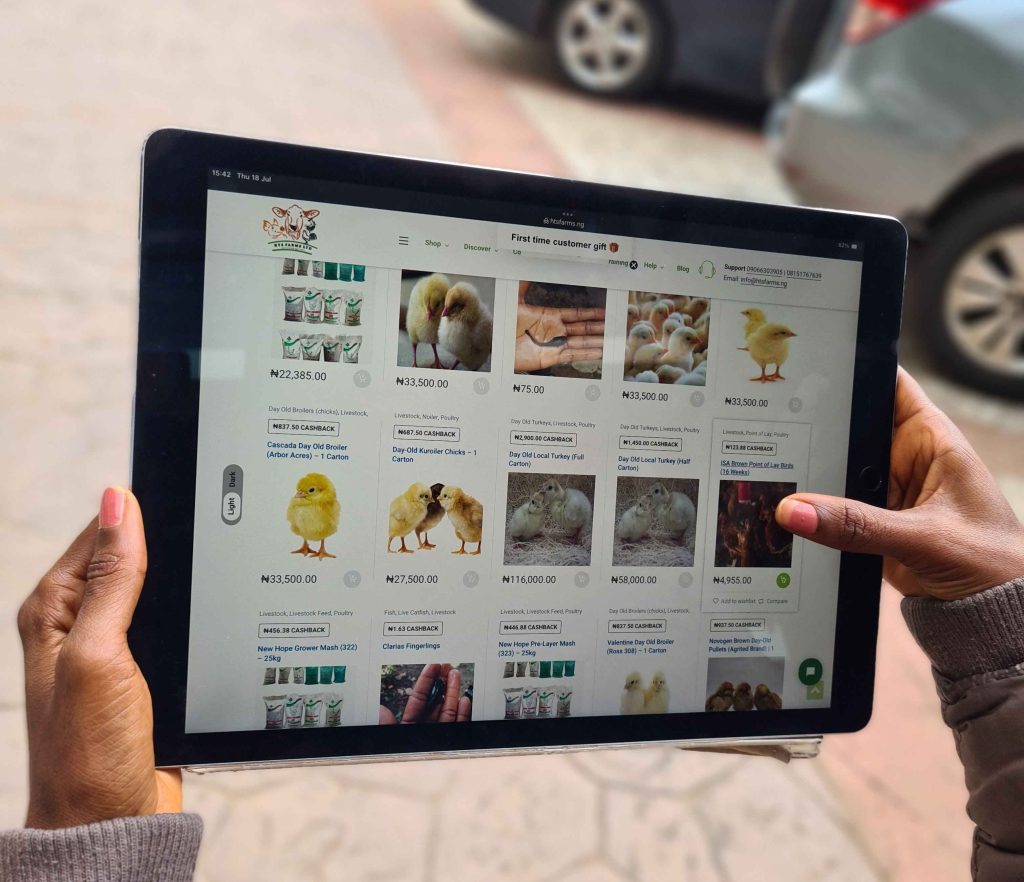
HTSF Global’s plans in integrating AI are already paving the way for more sustainable farming practices across the continent. However, overcoming challenges such as access to technology, high initial costs, and limited digital literacy will be key to ensuring that AI benefits all farmers, particularly smallholders. With the right investments in infrastructure, training, and support, AI can drive agricultural growth, improve food security, and enhance the livelihoods of millions in Africa.
